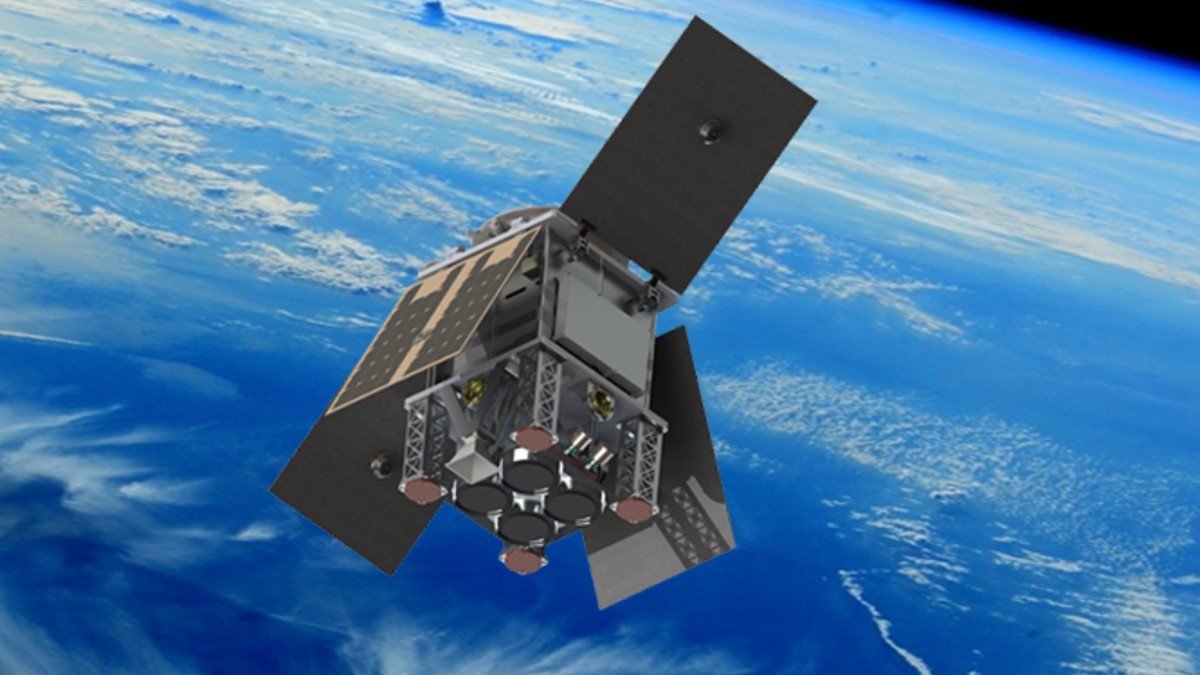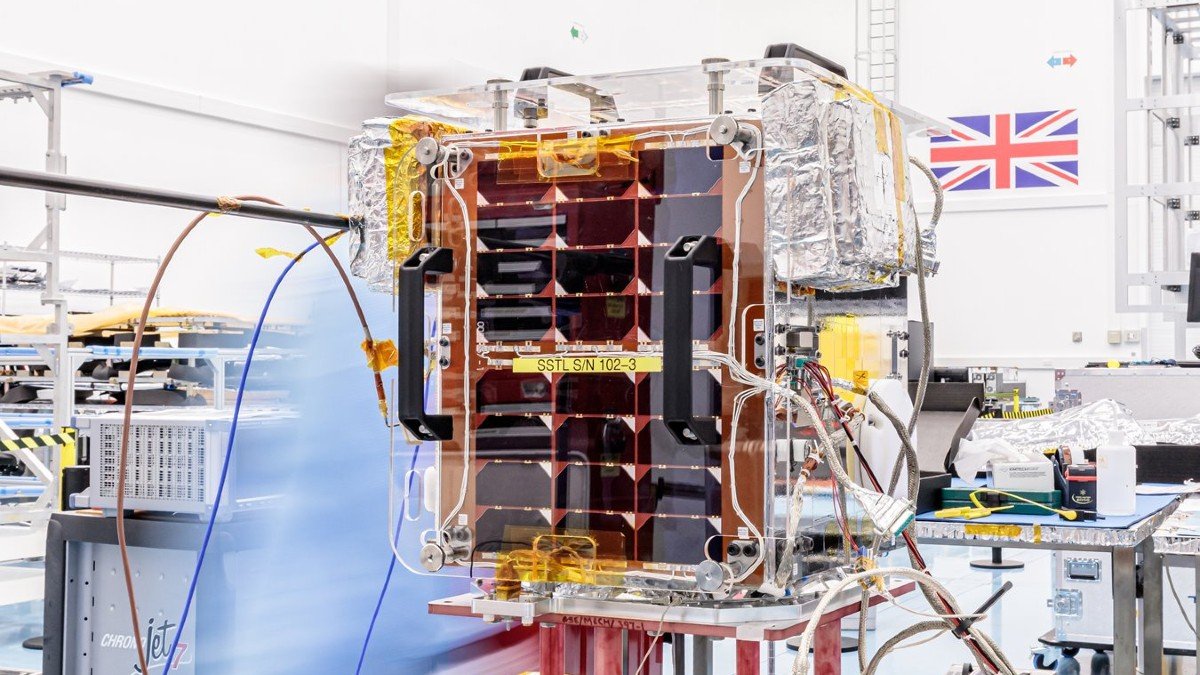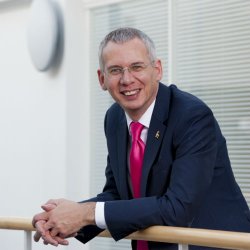Surrey students star at international satellite conference
Two PhD students at Surrey Space Centre (SSC) were the stars of the show at the International Academy of Astronautics Small Satellites for Earth Observation Conference when they picked up awards for their research.

"GNSS-R technology offers new opportunities for modelling and monitoring climate change," says Lucy
The 13th staging of this global event was due to be held in Germany, but it moved online due to pandemic restrictions. That change in location, however, didn’t stop Callum Middleton and fellow researcher Lucy King launch successful bids for honours against stellar competition from around the world.
Analysing farmland from space
Callum, who moved from Staffordshire to study at Surrey in 2017, was awarded first prize in the Young Professionals Presentation Competition. He won 1000 Euros and free entry to the Small Satellites Systems and Services Symposium in Portugal in 2022.
“At the conference, I delivered a paper entitled Field Trials of CHAFF: CubeSat Hyperspectral Application For Farming,” says the researcher, whose work is jointly funded by EPSRC and NPL via an industrial CASE studentship. “CHAFF is a low-cost hyperspectral imager prototype designed to take data on the Earth’s surface from a CubeSat. The latter are small, low-cost satellites.
“My research investigates how these usually large imagers can be integrated onto a CubeSat. I presented the results of a field trial of the instrument prototype, which I designed and constructed at SSC in collaboration with the NPL.”
And Callum’s trial did actually involve a field!
He continues: “My research focus is precision agriculture. Hyperspectral imagers can detect crop stress and maladies from space before such afflictions are apparent visually.
“The end goal is the development of cost-effective constellations of CubeSats, each with hyperspectral imaging capability. This will allow for places of concern on the Earth’s surface to be monitored more frequently.”
Callum finishes his PhD thesis later this year. Then he starts a job in Earth Observation at King’s College London.
Speaking of the award, he adds: “It was a great achievement, both personally and for SSC. I was happy to be a part of it with my friend and colleague, Lucy.
“It’s the culmination of the past three and a half years of research, and I’m glad I’ve made my own – very small – contribution to Surrey’s long history in space research.”
Sustainable development

“My talk included initial results from a recent flight on the SSTL spacecraft, DoT-1," says Lucy
Lucy King was SSC’s other success story at the conference. Originally from Portsmouth, Lucy joined the University in 2018 and her research is funded by NERC via a SCENARIO Doctoral Training Partnership studentship. She also has a CASE Industrial Partnership with our spinout company, Surrey Satellite Technology Ltd (SSTL).
“My presentation was titled Optimising GNSS Reflectometry on Small Satellites for Sensing Land Parameters,” she explains. “GNSS reflectometry – or GNSS-R as it’s known – is a relatively new method of remote sensing that uses the reflections of sat-nav signals from the ground to measure properties of the Earth’s surface.
“I talked about a new algorithm I developed to enable sensing over high-elevation land. This included initial results from a recent flight on the SSTL spacecraft, DoT-1.
“GNSS-R has been around since the 1990s and the use cases have primarily been focused on the ocean. However, there is increasing interest in using the method to sense the land surface to measure soil moisture or vegetation biomass.
“This is essentially what my work is about.
“Soil moisture and vegetation biomass have been designated as Essential Climate Variables, meaning they’re critical for modelling and monitoring climate change. GNSS-R can measure these variables and, as it can be implemented on small satellites, missions can be launched more quickly and cheaply than traditional radar missions.“
Taking second place in the Young Professionals Presentation Competition, Lucy won 500 Euros and a ticket to the Portugal Symposium in 2022.
“I was very proud to win this prize,” adds Lucy. “It’s nice to know there’s interest in my work and that I presented well, particularly after lockdown and speaking to fewer people!
“GNSS-R is still quite niche so I’m excited to spread the word about its capabilities.
“Moving forward, I’m working on the next version of the algorithm. The aim is to submit and defend my thesis before the end of 2021. After that, I may return to industry or study for a post-doctoral qualification. I’m interested in the crossover between remote sensing and sustainable development, so I may move into this area.”
High calibre
Professor Craig Underwood, Emeritus Professor of Spacecraft Engineering at SSC, added: “I’m very proud of Callum and Lucy’s achievements.
“Their success demonstrates the power of the SSC philosophy of selecting hard-working, high-calibre students to work closely with our key industrial partners – to the benefit of all.”
Learn more about studying at Surrey Space Centre.
